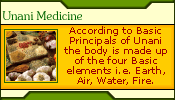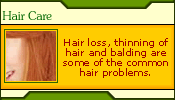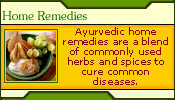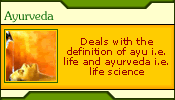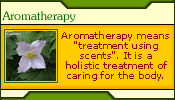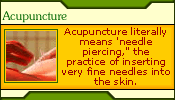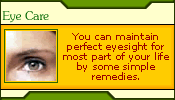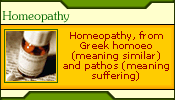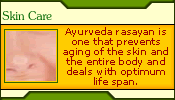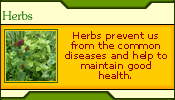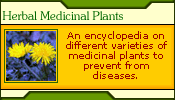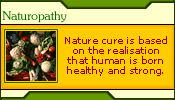|
There are about two grams of zinc in the body where it is highly
concentrated in the hair, skin, eyes, nails and testes. It is a
constituent of many enzymes involved in mertabolism.
Zinc is a precious mineral. Our need for this mineral is small
but its role in growth and well-being is enormous, starting before
birth. It is needed for healthy skin and hair, proper healing of
wounds, successful pregnancies and male virility. It plays a vital
role in guarding against diseases and infection. It is needed to
transport vitamin A to the retina. There are 156 enzymes that require
zinc for their functioning. It has long been known that growth and
sexual maturity depend on zinc.
The main dietary sources of zinc are milk, liver, beans, meat,
whole grains, nuts, and seeds. The recommended dietary allowance
of zinc is 15 mg. daily. Deficiency can result in weight loss, skin
diseases, loss of hair, poor appetite, diarrhoea and frequent infection.
Those suffering from rheumatoid arthritis may have a zinc deficinecy.
Heavy drinks lose a lot of zinc in their urine.
Zinc is one of the minerals men should never be without. and has
such a wide application in human health that everybody should ensure
that they obtain enough of this humble trace element.
Zinc is required for
It is necessary for a healthy immune system, and is also of use
in fighting skin problems such as acne, boils and sore throats.
It is further needed for cell division, and is needed by the tissue
of the hair, nails and skin to be in top form. Zinc is further used
in the growth and maintenance of muscles.
Children, for normal growth and sexual development also require
zinc.
It also seems as if zinc helps to control the oil glands, and is
also required for the synthesis of protein and collagen - which
is great for wound healing and a healthy skin.
Deficiency of zinc
There is a shortage of zinc in many people's diet, since zinc is
destroyed in the milling process and is also lost in cooking. A
deficiency will result in an under-performing immune system, open
to infections, allergies, night blindness, loss of smell, falling
hair, white spots under finger nails, skin problems, sleep disturbances
etc.
Men with zinc shortage may have a problem with fertility, while
women may experience irregular periods. Children with too little
zinc may have stunted growth and slow sexual maturity.
With too little in the body, the sense of smell might suffer, as
well as your sense of taste.
Dosage
The dosage is the Recommended Daily Allowance (RDA), but be aware
that this dosage is the minimum that you require per day, to ward
off serious deficiency of this particular nutrient. In the therapeutic
use of this nutrient, the dosage is usually increased considerably,
but the toxicity level must be kept in mind.
In the case of microelements, such as trace elements, the amounts
are very small, yet they are still important.
Toxicity and symptoms of high intake
Elevated intake of zinc (1- 2 gram per day) over an extended period
can actually harm your immune system instead of assisting it. Intake
of zinc should be kept to under 100 mg per day as larger amounts
may result in nausea, diarrhea, dizziness, drowsiness and hallucinations.
If you wish to take a zinc supplement, rather take it at night
on an empty stomach, as zinc can interfere with the absorption of
other minerals such as copper and iron. In a multi-vitamin situation,
make sure that the zinc and iron is nearly in the same amounts.
Large intakes of zinc can cause nausea and diarrhea
Best used with
A good combination in nutrition would be adequate levels of copper,
calcium, phosphorous, selenium, vitamin A, B6 and E.
When more may be required
Men should always ensure enough zinc in their diets, since the
health of their prostate gland is linked to zinc. Zinc is needed
to manufacture testosterone and a shortage may induce a low sperm
count, loss of libido and other emotional problems. Zinc may also
be helpful in fighting infection and inflammation of the prostate
gland in older men. It is lost on ejaculation, since sperm needs
this mineral to swim towards the egg.
If a women is taking a birth control pill, or receiving hormone
replacement therapy, extra zinc may be indicated, and all vegans
and vegetarians should also consider their zinc intake, as well
as people suffering from psoriasis and women while pregnant or lactating.
People consuming large amounts of alcohol may also be at risk of
lowered zinc levels
Enemy of zinc
Meat is a better source of zinc as certain whole grains contain
phytic acid, which binds to zinc, making it un-absorbable and zinc
is also lost through excessive sweating.
Other interesting points
Sucking zinc tablets may help with fighting a cold, although some
people experience nausea from sucking these tablets.
Food sources of zinc
Great sources are found in muscle meat, poultry, fish and seafood,
while grains, nuts, eggs, seeds and brewer's yeast also supply good
quality zinc.
|



